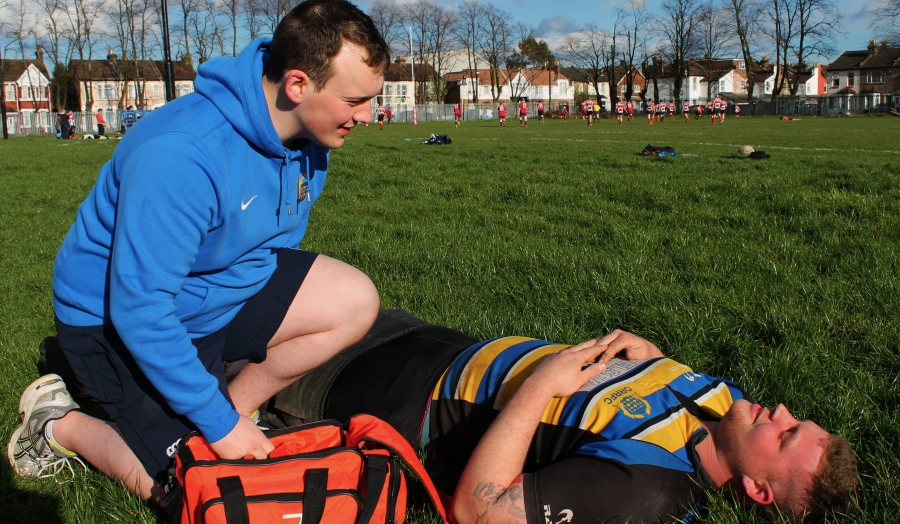Sports Therapy student Callum Donoghue talks about his background and shares his tips on what you need to succeed.
Can you tell us a bit about your background before starting at London Met?
I grew up in Wallington outside Croydon in Surrey – where I had ample opportunity to participate in a variety of sports, from rugby to water polo. I studied at Ewell Castle School – a small private school in the middle of Surrey. This is where I discovered my interested in science, particularly human biology and PE, which I studied at A-level. I wanted to develop my understanding of the subject further and plan to pursue a career in sports rehabilitation. I therefore chose the course at London Met as the content seemed a great basis for developing my skills and understanding.
What stands out about the course?
The variety of practical sessions available on the course, such as massage and electrotherapy, are what I like most about my studies. This hands-on learning is my favourite method of learning new skills, and I benefit far more than just listening and reading from books. The practical sessions have also given me access to sportsmen and women from different fields such as ice skating, netball and ballet as well as the usual rugby players and footballers.
The male-female ratio on the course was a split of 50:50, which was a pleasant surprise and this has made for a much better working/studying environment – we all learn from each other. The ratio is balanced and this provides me with a greater perspective on the demands on women in their particular sports. Because of this I have gained knowledge of ballet and cheerleading; areas I had no experience of before.
Have you had any work experience as part of the course?
I now have experience of working with physios in such diverse sporting fields as rugby, football, American football and roller derby as well as spending time overseas. This internal drive to make the use of my learning, practical experience and my upcoming degree should see me secure a good job regardless of any obstacles in my way. My impression, so far, of sports therapy is that nothing is given; it is earned and that drive to do well will keep you on course to becoming successful.
Do you have any tips for students?
I believe that a graduate should have both focus and self-discipline – it is these skills, coupled with a determination to succeed that have enabled me to attain an excellent standard in my coursework and exams, and also to build a CV which will stand me in good stead when I leave.
What is your dream job?
My dream job would be to work with a professional rugby team in the Aviva Premiership or being involved with the medical team for a national side such as England, Scotland or New Zealand.

